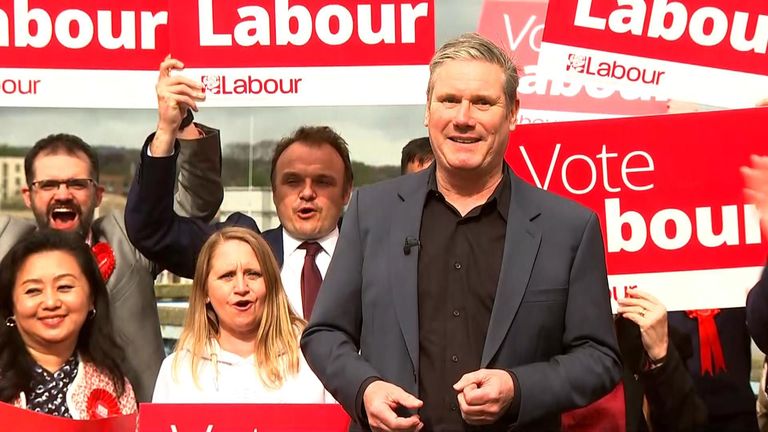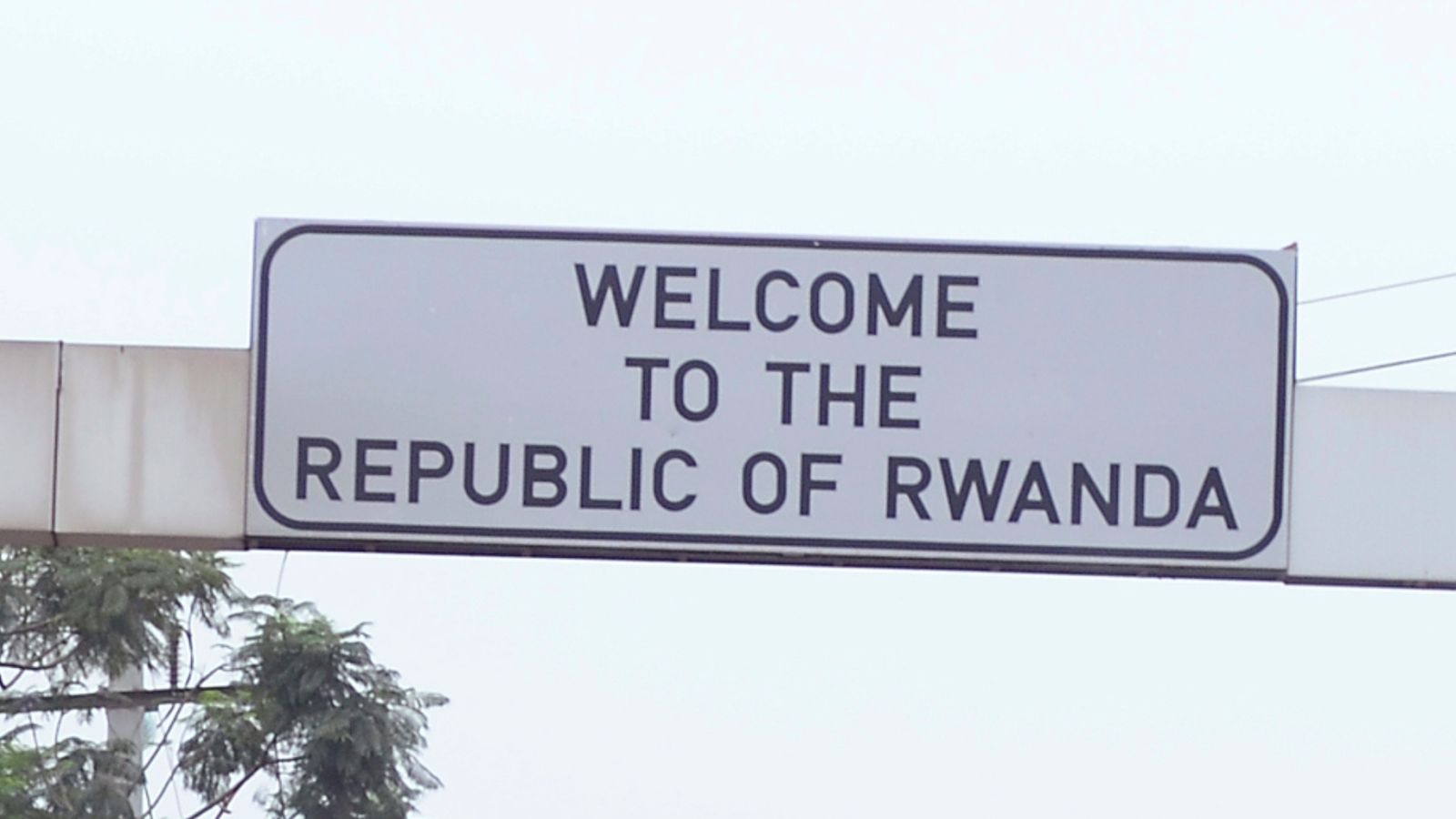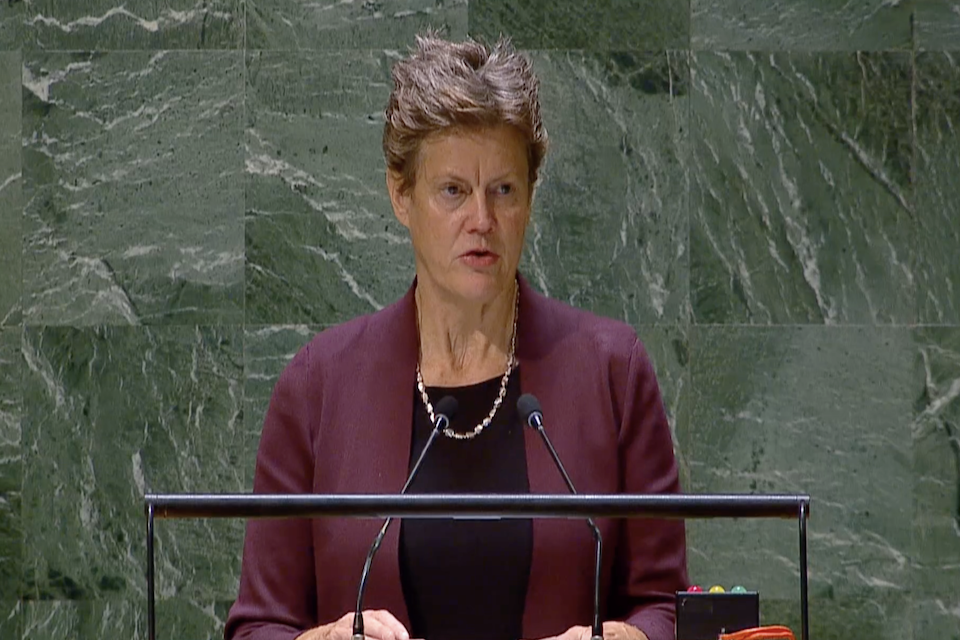Watchdog to examine new voter ID requirement after calls for it to be scrapped | Politics News
People faced “challenges” in casting their vote and some were turned away due to a lack of accepted ID, the elections watchdog said.
John Pullinger, who chairs the Electoral Commission, promised a “full report” into the impact of a new rule requiring voters to show photo identification at the ballot box, following calls for it to be scrapped.
He said he witnessed people being stopped from voting and said there is a need to “get underneath” the issues that led to such a situation.
Politics live: Sunak and Starmer react to Tory ‘hammering’
Mr Pullinger said the commission will publish an initial analysis in June, adding: “We will do a really detailed full report in September that will have recommendations on what we need to do about any challenges that people faced.”
The commission will collect data and details from polling station staff, parties, campaigners, tellers and observers, Mr Pullinger said, while a survey of those who voted and those who did not will also be carried out.
Thursday’s local elections across England were the first time voters were required to show ID before collecting their ballot paper.
Passports, driving licences and blue badges are among the IDs permitted, as are the free certificates that could be applied for ahead of the vote.
But the move has been widely criticised, with concerns expressed about voter disenfranchisement.
Mr Pullinger told BBC Radio 4’s Today programme that while “out and about” on Thursday he “saw people being turned away and we know some people were unable to cast their vote because they didn’t have the right documents”.
On whether to widen the number of accepted forms of ID, Mr Pullinger said: “Once we’ve done our assessment there’ll be the chance for politicians to make a view as to whether something should be changed or not.”
The requirement for voter ID was already in place in Northern Ireland and, from October, the condition will be extended to UK general elections as well.
The policy is opposed by Labour, the Liberal Democrats and the Green Party, who have warned the changes were unnecessary and would damage democracy by making it harder for some to vote.
But the government argues the move is required to reduce electoral fraud.
Read More:
Local elections: Turned away for not having the correct ID
Confusion’ over whether number of voters without photo ID will be recorded
Defending the changes, Northern Ireland Secretary Chris Heaton-Harris said the “big problems” critics warned of did not materialise, adding: “I think most people have just taken to it as you would expect them to.”
He told Sky News: “It’s a thoroughly good thing, it means that you can be completely sure that your elections are well tested and safe.
“And I don’t think, actually, considering this is a relatively big change for our politics in England, that there’s been any of the big problems that people warned might come from this.”
However, Tom Brake, of Unlock Democracy, who is leading a coalition of groups against the policy including the Electoral Reform Society, said: “Reports from all over the country confirm our very worst fears of the impact of the disastrous policy which has been made worse by the shambolic way it has been introduced.”
On Thursday, more than 8,000 council seats were being contested across 230 local authorities, while mayors were being selected in Bedford, Leicester, Mansfield and Middlesbrough.
Cllr Kevin Bentley, chairman of the Local Government Association, said it is “too early to properly analyse” how the new requirements have gone and said councils will be “reporting into the Electoral Commission’s review of the process in the coming days and week”.
He added: “It is vitally important that the government works with councils, the Electoral Commission and all those involved in elections to rigorously and transparently evaluate the implementation of voter ID at today’s elections, to ensure lessons are learned ahead of future elections.”




